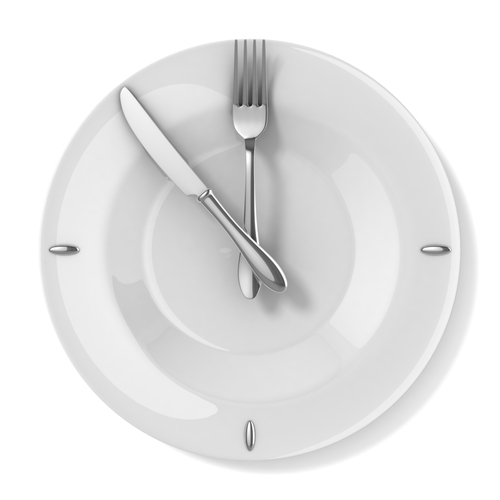 The time at which you eat certain foods has a huge impact on your physiology. By eating the right foods at the right times, you’ll create a more balanced body. On the other hand, by eating the wrong foods at the wrong times, you’ll shift the body out of biochemical alignment. Understanding when to consume certain nutrients allows us to take advantage of key time periods throughout the day.
The time at which you eat certain foods has a huge impact on your physiology. By eating the right foods at the right times, you’ll create a more balanced body. On the other hand, by eating the wrong foods at the wrong times, you’ll shift the body out of biochemical alignment. Understanding when to consume certain nutrients allows us to take advantage of key time periods throughout the day.
Let’s take a look at how we can use nutrient timing to our benefit to help us regulate our physiology for better body-composition and aesthetics:
Breakfast
Our physiology is in a very different state first thing in the morning relative to other time periods of the day. This is because we’ve gone the night without eating, leaving our body hungry for nutrients. As a result, breakfast is literally the time to “break the fast”. During breakfast, our body is better able to digest food and process nutrients. Knowing this, we can strategically plan what we eat to better optimize our physiology.
Breakfast is the time to set our momentum for the day. By skipping breakfast or choosing a carb-dominant meal in the morning (especially simple sugars like muffins and doughnuts), you become much more likely to practice poor nutrition throughout the rest of the day as well.
Research has shown, time and time again, that what we eat first thing in the morning has a huge impact, so it’s important to prime the body with the right foods. While many of us neglect protein by reaching for quick snacks, protein is an especially important nutrient at this crucial time period. Those who eat protein-rich breakfasts see key benefits throughout the day: 1) A decreased appetite, which leads to less calorie consumption, 2) More stable blood sugar levels, which lead to fewer cravings, 3) More energy, and 4) Better focus. All of these benefits start first thing in the morning. Just remember: you have the opportunity to get off on the right foot or the wrong foot—it’s up to you.
After exercise: the post-workout period
After exercise, your physiology is completely different. Having used up so much energy for training, the body begins acting like a sponge, ready to soak up and absorb nutrients. If ever there was a time to consume carbohydrates, this would be it. With your cells primed for the uptake of nutrients, there’s a greater probability that what you eat will be stored for energy instead of fat. Seeing as how we love our carbohydrates (ie: bread, pasta, rice, potatoes), we can use our knowledge of this post-workout period to schedule exercise sessions before carbohydrate-heavy meals. However, it’s important to consider the level of effort exerted during exercise. Fifteen minutes of light jogging does nothing to prime the body for this post-workout period. Research shows that this post-workout physiological phenomenon only results from high-effort exercise, characterized by sweating and an elevated heart rate. So, as a rule, earn your carbs—sweat for sweets!
If you do want to indulge in what’s often referred to as a “cheat meal” (ie: a typically unhealthy meal consumed to satisfy your taste buds, cravings and overall sanity), this is the time to schedule it. Of course, that doesn’t mean that you can pig out after every time you train, but if you know that you will be going out for dinner with friends or family, or taking part in some type of social engagement, plan a workout beforehand to minimize the negative physiological impacts (specifically, fat storage).
General times throughout the day – lunch and snacks
If you’re looking to lose weight, it’s important to focus on keeping your blood sugar levels as stable as possible throughout the day—that means prioritizing protein and healthy fats over carbs. Remember: carb-dominant meals increase your blood sugar levels. Our goal is to avoid these blood sugar level spikes. As a general rule: focus on protein and fat-dominant meals throughout the day, accompanied by vegetables for added fiber, vitamins and minerals. Save carbohydrates for your post-workout period on workout days and for breakfast on non-workout days.
Consuming protein and fat-dominant meals rich with fiber will not only work to keep your blood sugar levels stable (and help us in our battle against the bulge), it will also help keep you focused and energized. This means you’ll be more productive throughout the day and, at the end of the day, you’ll have the energy you need to go work out, prepare food and take care of errands. Many people try to stay energized and focused by reaching for sweets and coffee to artificially jolt their systems every few hours, but this is definitely not the way to go.
Before bed
Eating a large or carb-dominant meal right before going to bed is never a good idea. However, having a snack 30 minutes or an hour before bed is absolutely fine.
As we draw closer to bedtime, the body begins to unwind and turn off—sleep is a process of relaxation, recuperation, and regeneration. Turning on the digestive pathways full-blast right before going to bed works against what the body is trying to do at this crucial time. That said, eating a small snack that combines the right nutrients will help to stabilize your blood sugar levels throughout the night. At this time of day, the idea should be to focus on smaller portions made up primarily of proteins and fats. Although a large portion of carbohydrates is not advised, a small serving will cause the brain to release serotonin, which is a relaxing agent. Therefore, the addition of a small portion of low-glycemic carbs (ex: half an apple) can help you relax and unwind in the evening.
Conclusion
As we’ve seen, our body works differently at different times of day and completely changes after exercise. Using this knowledge, we can strategically plan our meals to best coincide with the natural flow of our internal chemistry—helping to maximize our weight-loss efforts and regulate our body-composition.
